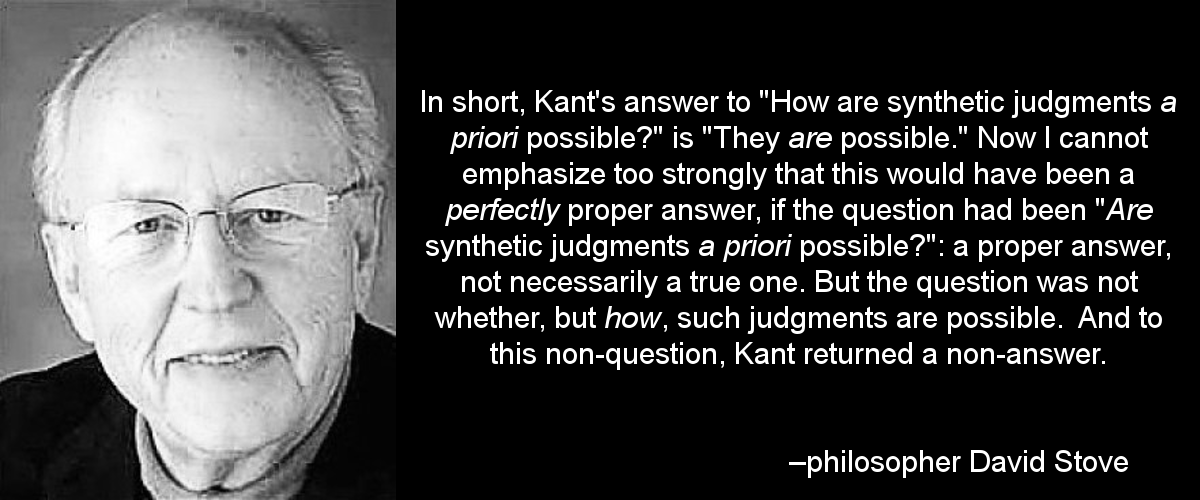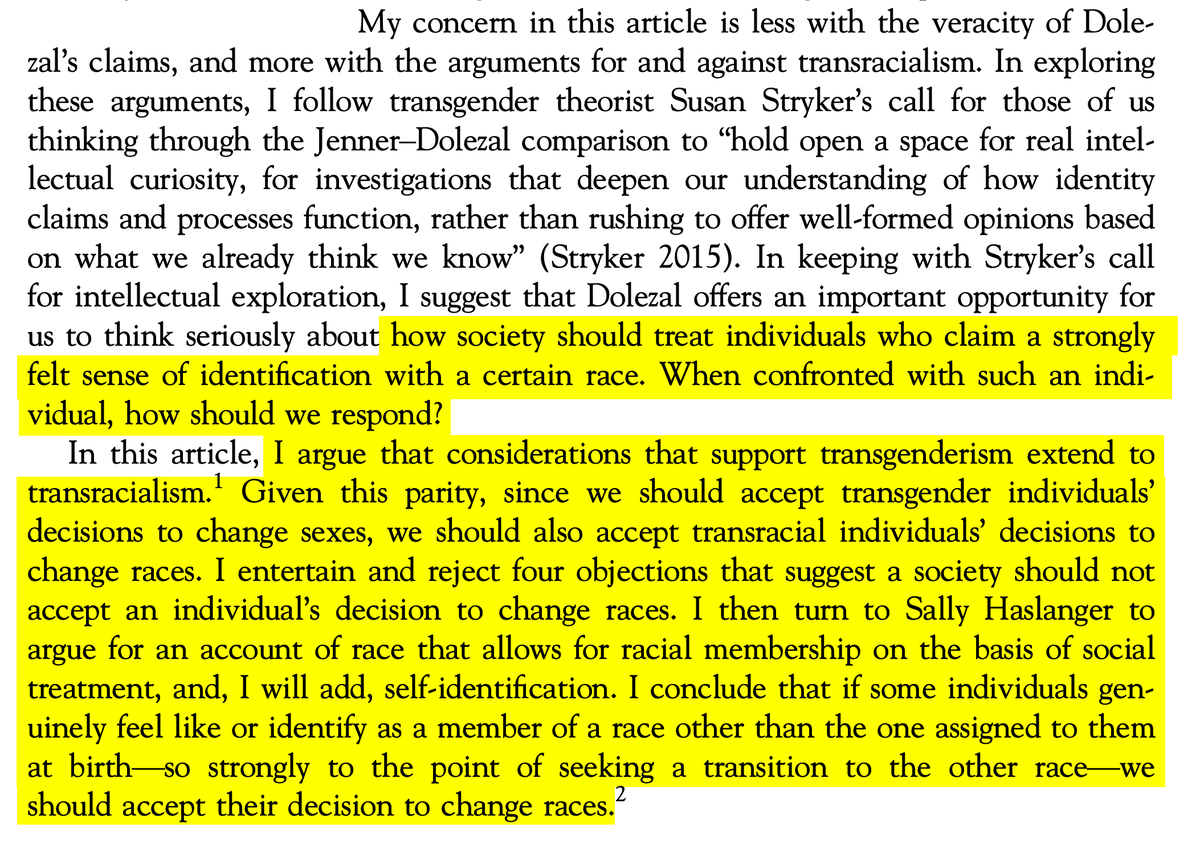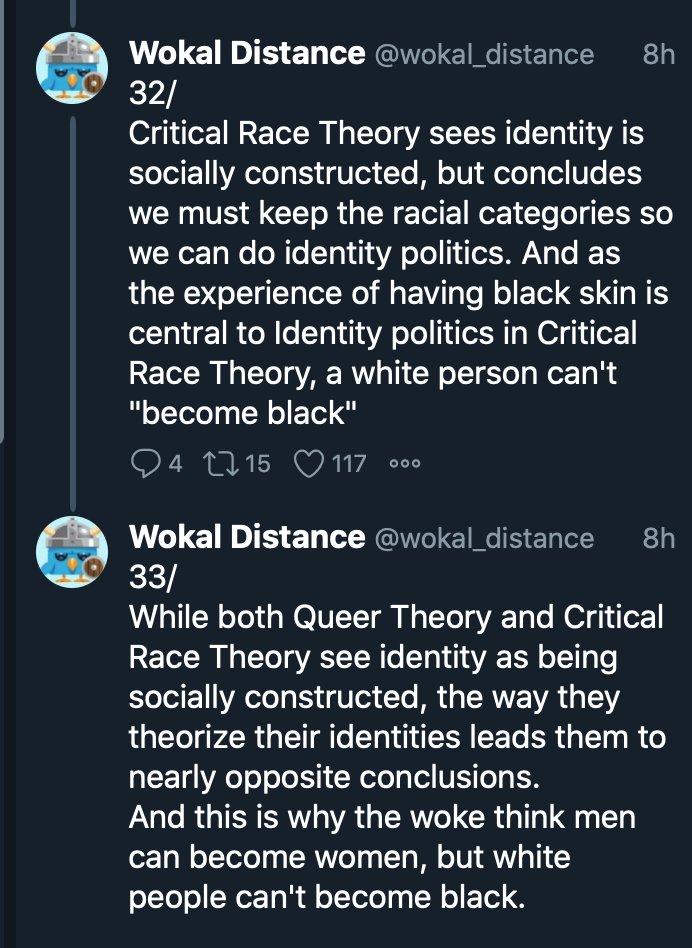
But of course the criticism fails.
It changes the first premise of the ontological argument and declares that the NEW premise (which the critic added) makes the ORIGINAL argument invalid, when, in fact, it is the new, added premise that does that.
Anyone can “refute” this way.
It changes the first premise of the ontological argument and declares that the NEW premise (which the critic added) makes the ORIGINAL argument invalid, when, in fact, it is the new, added premise that does that.
Anyone can “refute” this way.
https://twitter.com/StanRockPatton/status/1329994126104752129
Give me ANY argument at all you regard as sound, and I will change a premise to make it unsound, and thereby “refute” it. 🤷🏻♀️
“That than which nothing greater can be conceived” is the MEANING of “God.”
Anselm, gives the meaning, then ASKS about its status BOTH as idea and reality.
As an idea, it is cogent.
The argument shows that if it is a cogent idea, then there is a reality that corresponds to it.
Anselm, gives the meaning, then ASKS about its status BOTH as idea and reality.
As an idea, it is cogent.
The argument shows that if it is a cogent idea, then there is a reality that corresponds to it.
The premise is definitional, and the definition is not arbitrary. It is what classical theism has always meant by “God”, and recognizably so.
Oh, it’s your own logical cheat. 🤷🏻♀️
Well, so much the better.
Let me instruct you: you cannot change the first premise of an argument and the declare it unsound on the basis of your alteration.
That is not sound refutation. All you do is defeat your own, altered argument.
Well, so much the better.
Let me instruct you: you cannot change the first premise of an argument and the declare it unsound on the basis of your alteration.
That is not sound refutation. All you do is defeat your own, altered argument.
Also, you do not understand Kant.
He says that “existence is not a REAL predicate,” not “existence is not a predicate.”
And to understand what a “real predicate” is, you need to understand the term as Baumgarten uses it, because Kant is dependent on Baumgarten for it.
He says that “existence is not a REAL predicate,” not “existence is not a predicate.”
And to understand what a “real predicate” is, you need to understand the term as Baumgarten uses it, because Kant is dependent on Baumgarten for it.
And Kant is correct that existence is not a real predicate (in Baumgarten’s sense) — but this is entirely irrelevant to the Ontological Argument.
There is no need whatever that it BE a real predicate.
It is sufficient that way may assert of things that they exist, which we can.
There is no need whatever that it BE a real predicate.
It is sufficient that way may assert of things that they exist, which we can.
For Kant’s critique to work, you have to deny that we can assert that anything exists.
If you *do* deny that existence can ever be asserted, you have obviously blocked any assertion of the existence of God.
Any anything and everything else.
High price to pay to deny God.
If you *do* deny that existence can ever be asserted, you have obviously blocked any assertion of the existence of God.
Any anything and everything else.
High price to pay to deny God.
And of course, denying that existence can ever be asserted would also apply to non-existence, so that couldn’t be asserted of anything either.
Besides the obvious fact we can and do assert existence, daily, there is the fact that in denying it, you are asserting the non-existence of meaningful assertions of non-existence, which is a performative contradiction.
So you probably don’t want to go down that path.
It doesn’t end well.
It doesn’t end well.
Anyhow, your argument turns on the false dichotomy between “idea” and “reality”, since Anselm begins from a definition.
“A square circle is a circle with four straight sides and four right angles” is a definition. But it corresponds to NO idea and NO actuality.
“A square circle is a circle with four straight sides and four right angles” is a definition. But it corresponds to NO idea and NO actuality.
So a definitional meaning need not correspond to any idea or actuality.
So Anselm’s starting point is NOT an ambiguity between an idea and an actuality.
So your “does it mean the one or the other?” question is a error, since the answer is “neither.”
So Anselm’s starting point is NOT an ambiguity between an idea and an actuality.
So your “does it mean the one or the other?” question is a error, since the answer is “neither.”
The argument progresses from
1 a definitional meaning
to
2 an idea/concept/thing which is understood
to
3 an actuality.
1 a definitional meaning
to
2 an idea/concept/thing which is understood
to
3 an actuality.
• • •
Missing some Tweet in this thread? You can try to
force a refresh







